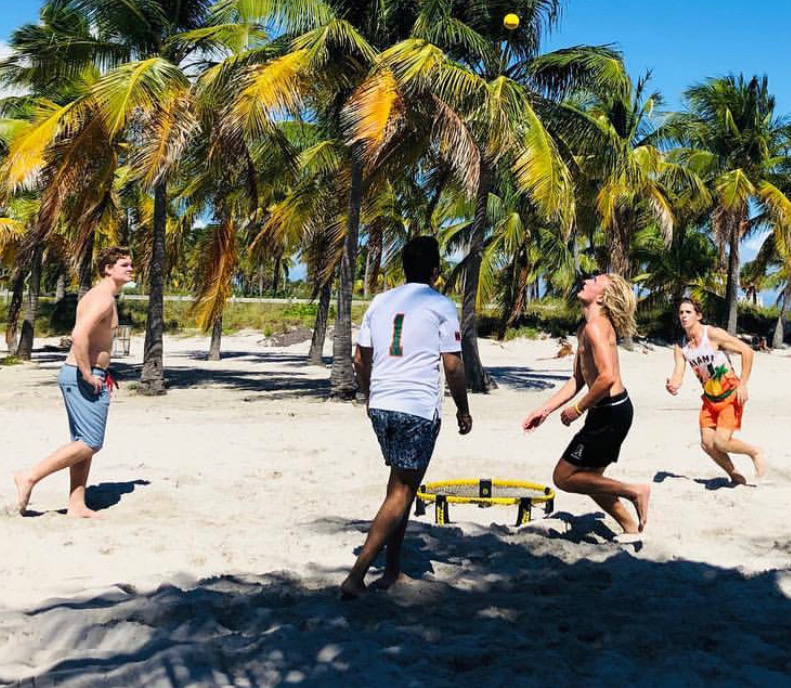
After a sharp fall in popularity, some University of Miami students are reviving spikeball, the popular net game that made its club debut on campus in 2017 but fizzled out just after two years.
“Nobody was interested in picking the leadership of the club, so I decided with some friends who were also in the club before to take over and make this into a real club,” said senior Rohan Wadhwa, the spikeball club’s new president. “We believed there was so much potential to be a really great club and create a community,”
Spikeball, also known as roundnet, was created in the late 1980s and is gaining popularity on and off college campuses.
Teams of two stand on either side of a trampoline-like net which serves as a bouncing board for the game’s small ball. After a serve, each team is allowed three touches, or passes, before they must bounce the ball off of the net and to the other side. Like tennis and other rally-based sports, the first team to fail to return the ball loses the point.
“It is somewhat similar to volleyball, and it gets really competitive because you can hit the ball anywhere off the net and you’re running around the net constantly,” Wadhwa said.
While the game is often played at the beach, its reemergence as a club in 2020 has shown some students the potential it has as a truly competitive sport.
“When I joined, I was shown this competitive side of it, and I was like ‘Wow, this is crazy,’” Wadhwa said. “I didn’t realize there was such a legitimate competitive side of this sport.”
With a spikeball club on almost every college campus and a growing inter-collegiate league, Wadhwa said the UM club is actively training 12 members to compete with other universities.
“I joined Spikeball club here because I wanted to play with more competitive students,” said Matt McConnell, a sophomore marine science and biology major and a member of the competitive team.
Wadhwa said the team is planning to compete in the College Tournaments of the Spikeball Roundnet Association next fall.
Wadhwa, a psychology major graduating in May, said he is excited about the participation of freshmen and sophomores who can run the club after he leaves. Freshman biology major Sasha Bakulina is eager to take on the challenge.
“I have been playing a lot with friends since the start of quarantine, and I really just wanted to find people who would be willing to play once or twice a week and who I could play competitively with,” said Bakulina, the club’s secretary.
Bakulina says he hopes to recruit more girls to play for the club. Currently, 16 of the 20 active members are male.
Students interested in joining the spikeball club can email Rohan Wadhwa at rxw484@miami.edu or sign up through Engage.





